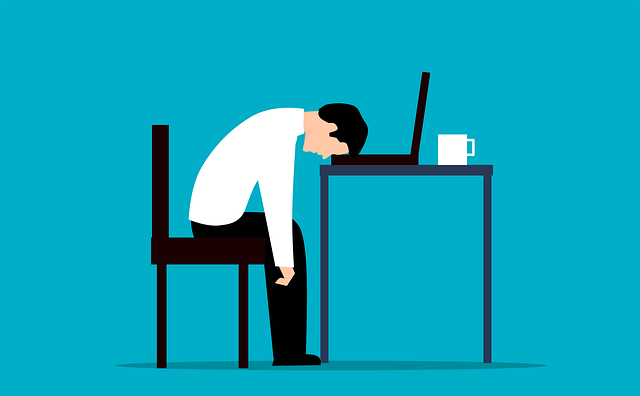Burn out, bore out et brown out...What are the symptoms and differences?
by Christelle Marchetti | on January, 25 2024 |
Many symptoms may seem benign, reflecting simple weariness or lack of stamina, which is why the first signs of work-related exhaustion or malaise often go unnoticed.
We often hear about burn out, but don’t really know the signs. And if I talk to you about Bore out or Brown out, are you lost? So here’s a little more detail on these terms…
BURN OUT
Burn out Burn out in a few words...
Burn-out is a syndrome resulting from chronic stress at work. Three elements may describe burn-out:
- a feeling of exhaustion,
- a negative view of others and work,
- and the feeling of not being able to meet the expectations of colleagues and superiors.
- a feeling of exhaustion,
a negative view of others and work,
It’s a physical and psychological collapse that happens one day and prevents us from getting up and carrying out our simple, everyday tasks. It takes some time to regain our equilibrium.
Burn-out is, in fact, a state of emotional, mental and physical fatigue in the workplace alone.
What are its signs?
Physical exhaustion
Physical exhaustion can be characterized by severe, constant physical fatigue and (more often than not) back or wrist pain. Even the usual activities of daily life become more difficult to perform, and eventually become overwhelming!
Emotional exhaustion
Difficulty in containing and controlling emotions such as anger, frustration or impatience can be linked to emotional exhaustion. These strong emotions are exacerbated at work, and can get the better of even the most trivial events.
Another symptom can be depersonalization: no longer feeling in charge of your own life!
Cognitive exhaustion
Cognitive exhaustion is signaled by recurrent difficulty in concentrating on tasks: memory loss, forgetting certain important tasks in one’s personal or professional life, a general decline in one’s intellectual capacities…
Burn out covers a whole range of symptoms caused by stress in the workplace, first and foremost!

What causes burn out?
Difficult working conditions can generate this symptom::
- Un travail trop intense : délais et objectifs irréalistes, horaires excessifs…
- Work that is too intense: unrealistic deadlines and objectives, excessive working hours, etc.
- Lack of autonomy and room for manoeuvre on the part of the worker
- Difficult working relationships
Value conflicts with the rest of the team - A feeling of insecurity linked to work (fear of losing one’s job, late payment of salary, etc.)
- Lack of recognition and appreciation of work performed
- Over-investment in work
Strong professional commitment is a major risk factor for burn out…
To find out how much stress you have in your daily life, read this article “What is the level of your stress in a daily life”
BORE OUT: UNDER PROFESSIONAL INVESTMENT
LE BORE OUT IN A FEW WORDS
Bore out is about under-investment at work, a lack of perspective, deep and lasting boredom leading to general exhaustion and depression.
It’s a feeling of being under-utilized, of having skills beyond what you’re used to, and of wasting those skills.

What are its signs?
On a physical level
Signs such as weight gain, unusual fatigue, musculoskeletal and intestinal disorders, skin manifestations and insomnia are common.
On a psychological level
De-motivation, anxiety, sometimes guilt, sadness, ruminations and negative thoughts can be observed.
Over time, the employee may experience a drop in performance and memory problems.
What causes bore out ?
The causes of boredom are focused on
- Repetitive and monotonous tasks,
- A mismatch between skills and expectations,
- Being sidelined,
- Conflict situation, disagreement with colleagues, changes in management…
BROWN OUT: LOSS OF A SENSE OF WORK
Brown out in a few words
The term “brow out” means “voltage drop in an electrical appliance”. It describes a situation where people no longer function at “full power”. We lose all sense of meaning in our work and perform tasks mechanically, without regard for their quality. De-motivation, disengagement, fatigue… brown out can lead to excessive stress and damage employees’ health.

What are its signs?
Brownout is complex, but it does manifest itself in specific signs:
- Behavioral changes, including temper tantrums: Individuals in “brownout” may exhibit outbursts of anger or irritability. These emotional reactions may be a response to frustration and disengagement.
- Repeated absences: Brownouts tend to be absent from work more frequently. These absences may be linked to a loss of motivation or an inability to cope with work demands.
- Professional second-guessing: Brownouts often question their career choices and their place in the company. They may wonder whether their work has any meaning, or whether it is really contributing to their personal and professional goals.
What causes brown out ?
The main causes are linked to a gradual loss of meaning in one’s work.
- The repetitive nature of tasks can lead to a loss of interest in work and a feeling of constant boredom.
- Lack of meaning or recognition for the effort put into the job can also contribute to this loss of interest.
- When you feel constantly controlled or closely supervised, a sense of disconnection and loss of meaning can occur.
- Lack of contact and connection with company management in imposing structures and extensive organization charts.
- Personal events such as chronic sleep deprivation, childbirth, divorce, bereavement or existential questioning…
- A lack of understanding or assistance from colleagues or management can also contribute to the situation, and are major issues for mental health in the workplace.
How to free yourself from professional unease?
By paying particular attention to everyday ailments, their intensity and duration over time.
Each ailment has its own message. If you pay it little attention.
When the first signs appear, seek medical advice and inform your direct management to find solutions to the unpleasant conditions experienced at work. In-company support can help prevent these ailments and free you from their effects as soon as the first signs appear!
DO YOU KNOW?
In addition to medical advice, holistic therapies such as sophrology can be invaluable in relieving symptoms of discomfort, depending on their intensity? Sophrology helps to reduce and release everyday tensions, relieve and strengthen the mind, and establish new, healthier habits in the rhythm of daily life.
Next sophrology workshop on Saturday, February 3 at Moncton (in French)
If you'd like to discover what breathing can do for you, come and join us at the next well-being workshop!

